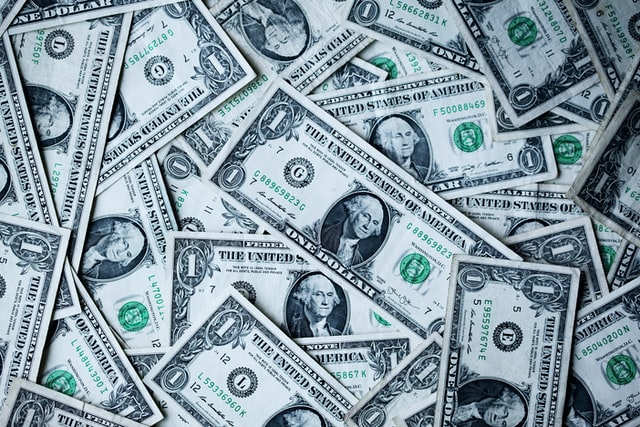Opinion
Why increasing the money supply is effectively a tax
This is an article explaining the argument that raising the supply of a currency is effectively a tax on those who hold that currency.
Poster Opinion Score: 100%
Average Article Score: 100% , with 1 Score
Posted On: 05/08/2022 at 7:41 PM

When you increase the supply of something, all else remaining equal, its value decreases. When you decrease the supply of something, all else remaining equal, its value increases. Gold is a relatively rare material on earth, so it holds a high value. If gold rained down from the clouds like rain, gold would not be as valuable, because it would be much more common. This same principle holds true for money. If you take money out of circulation, the value of money increases. If you put more money into circulation, the value of money decreases. This is basic Supply and Demand and the basis of Economics. If you want an introduction to Supply and demand, I wrote one here: The Law of Supply and Demand Explained.
So, why does the federal reserve increase and decrease the money supply? I will give a very basic explanation. Basically, during times that the economy is Shrinking/slowing/isn’t doing so well, injecting more money into the economy makes it more likely for banks to give out loans, for businesses to borrow from banks, and for consumers to buy from businesses. All, because money is cheaper/more plentiful. This in theory, stimulates the economy so that the U.S economy does not experience an economic recession.
Now, why would the federal reserve ever want to decrease the supply of money? Well, if there is too much money in the economy, we get inflation. What is inflation? Here are two good definitions of Inflation from two good sources:
Inflation- the decline of purchasing power of a given currency over time. https://www.investopedia.com/terms/i/inflation.asp
Inflation - in economics, collective increases in the supply of money, in money incomes, or in prices. https://www.britannica.com/topic/inflation-economics
In simple terms inflation, in this context, means the decrease of the value of a currency. Remember when you increase the supply of something you decrease its value. So, when the U.S federal reserve increases the supply of the U.S Dollar, they also decrease the value of the U.S dollar.
But why can inflation be bad? Inflation can be bad because if inflation gets too out of hand, the value of the dollar will become too low and effectively become useless. This is because a good currency needs to be relatively stable to be useful.
If today a gallon of milk costs $3 and then 1 year later a gallon of milk costs $3.15 that is not a big deal. But, if today a gallon of milk costs $3 and then the next year a gallon of milk costs $1,000,000 that means that inflation has gotten out of hand and the dollar has effectively become useless.
Would businesses realistically accept dollars if they knew in a year, they would be worth so much less? Would you want to be paid in dollars if you knew your money would basically be worthless in a relatively short amount of time? Therefore, the federal reserve wants to keep inflation under control and do not want to put too much money into the economy.
So, if the economy is growing too fast, and the purchasing power of the dollar is decreasing too fast the federal reserve will want to decrease the money supply to slow the growth of the economy and to stop/slow inflation.
Now that you understand why the federal reserve wants to manipulate the money supply (how much money is in the economy), I will now hopefully prove that them increasing the money supply is effectively a tax.
When the federal reserve raises the supply of the dollar, they lower its value. That means that when they raise the money supply everyone’s money gets less valuable. So, the money in your bank account, your safe, and your wallet all loses value. This is effectively a tax.
When the government usually taxes you, it works like this. You get a check for $100; the government takes out $15 from that check and uses that money to pay for roads, defense, etc. You initially had $100 but, after they taxed you, you only had $85.
When the federal reserve “taxes” you it works like this. You get a check for $100 dollars; the federal reserve then raises the money supply (lowering the value of your money), to spur the economy. Your $100 dollars initially had a value A, but after increasing the money supply your $100 had a value of B. Where A is greater than B.
So, when the government takes money out of your check AND when the federal reserve raises the money supply, they both decrease how much money/value you possess, in the name of the government/federal reserve carrying out some goal. Therefore, raising the money supply is effectively a tax.
Article Scoring:
Number of Scores: 1 Scores
| Category | Mean | Mode |
|---|---|---|
| Writing Quality | 5 / 5 | No Mode |
| Title Honesty | 5 / 5 | No Mode |
Number of Scores: 1 Scores
How well does this article convey its message?
| Rating | Count |
|---|---|
| 1-Very Poorly | 0 |
| 2-Poorly | 0 |
| 3-Nuetral | 0 |
| 4-Well | 0 |
| 5-Very Well | 1 |
How indicative is the title of this article to it's subject matter?
| Rating | Count |
|---|---|
| 1-Not Indicative at all | 0 |
| 2-Not Indicative | 0 |
| 3-Nuetral | 0 |
| 4-Indicative | 0 |
| 5-Very Indicative | 1 |
COMMENTS:
There are no Comments Yet!
